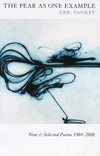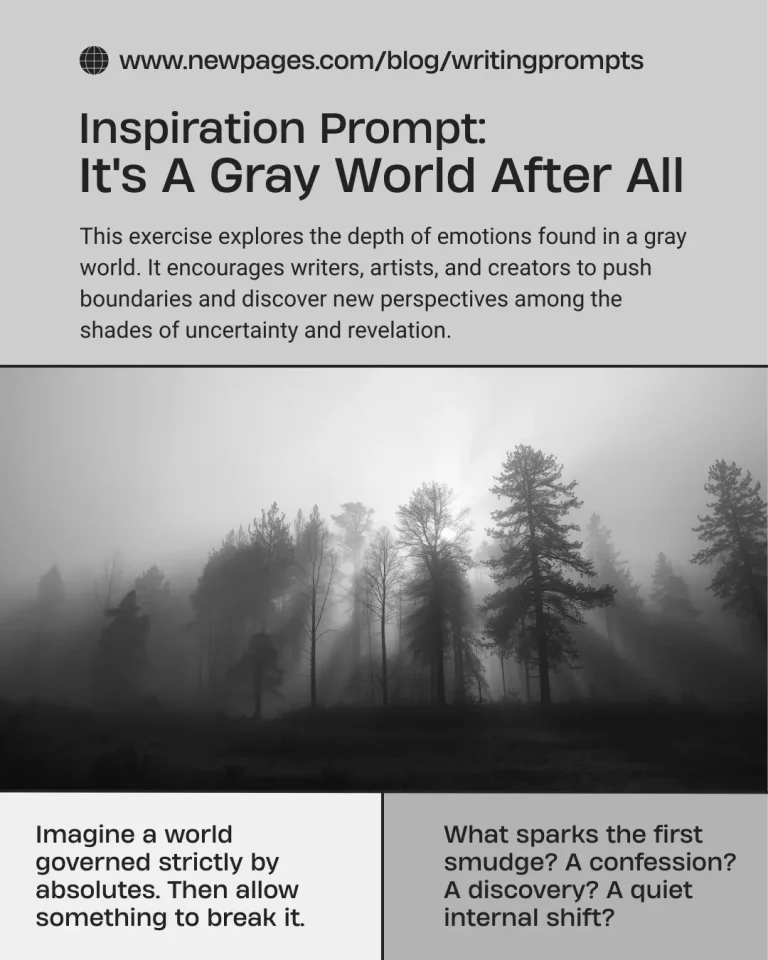Spanning his entire career, Eric Pankey’s The Pear as One Example includes selections from seven previous collections of poems, as well as a complete new collection, Deep River. Brand new to his work, I was immediately impressed by his linguistic virtuosity, especially his botanist-like knowledge of flora and fauna, and his poetic range, from vividly described narrative-lyrics to ontological meditations. Pankey is a poet-naturalist, and in the tradition of Emerson and Thoreau, whatever truths and visions emerge in his poetry he earns from precise observation.
Spanning his entire career, Eric Pankey’s The Pear as One Example includes selections from seven previous collections of poems, as well as a complete new collection, Deep River. Brand new to his work, I was immediately impressed by his linguistic virtuosity, especially his botanist-like knowledge of flora and fauna, and his poetic range, from vividly described narrative-lyrics to ontological meditations. Pankey is a poet-naturalist, and in the tradition of Emerson and Thoreau, whatever truths and visions emerge in his poetry he earns from precise observation.
In the poem “Debtor of Happiness,” Pankey invites associations and abstractions of thought only after firmly grounding us in the concrete. The poem opens with a tone of lament, “Whatever empties the feeder / comes and goes without my knowing. / There is little satisfaction / in their names or the songs I’ve stopped / listening for,” and the speaker goes on to recollect experiences that once brought visceral and spiritual satisfaction:
I broke open a frozen pumpkin
against the trunk of the maple
and chickadees and cardinals
and even a cedar waxwing
cleaned out the three jagged fragments
of their hard white seed.
The speaker then claims, “I believe the birds no longer / sing their one song of alliance . . . Now in my dreams if I fly / flight is more like a falling.” Pankey does not extend himself beyond these declarations; he does not explain the reasons for his new state of “unaware[ness].” In this sense, the typical Pankey poem steers clear of the revelatory Romantic sublime or “pathetic fallacy.” The speaker has lost his connection to the natural world, which is precisely that: his (or our) loss, and not nature’s. The poem offers us the thematic pleasure of speculating the reasons for this loss, a pleasure enhanced by the poet’s dexterity: sensory details render a visceral experience and patterns of alliteration and internal and end rhyme provide a euphonic coherence.
Though the speaker in this poem is forthcoming with his thoughts, I will caution that one should not always anticipate a great amount of narrative in every Pankey poem. He often emphasizes imagery and sonic effects over linear story-telling. Some readers might be put off by his Whitmanesque catalogues of the natural world, though others might be drawn to the texture that they provide. Ultimately, his frequency of lists and insistence on naming illustrate the conundrum of the lyric poet: language’s failure at precisely conveying experience, emotion, or the thing itself. Pankey asks and then hauntingly answers in “See That My Grave Is Swept Clean,” “Are words but an entrance? Words are but an entrance.”
Pankey relishes language and knowing how to name things, but his deeper concern is what lies behind the name. His poems often begin with a speaker engaged in the act of looking, which becomes a prolonged gaze that fuels a curiosity aimed at further discovery. Perhaps his overall poetic project can be described by the opening lines of his poem “Extracts from a Treatise on Form”: “I attempt to make manifest the hidden, and in doing so, / attempt to not veil the apparent.” In the title poem of this collection, Pankey puts that practice into action. He describes a nameless “he” who has closed his eyes while holding a pear:
This is it.
This I would know without metaphor.
But his touch rubs up the pear’s perfume:
A hint of honey and magnolia,
Grape and almond. None of it the pear
But the otherness that is the pear.
These lines suggest the provisional nature of metaphor and language itself to precisely describe the essence of a thing. Pankey comes to find that an essence represents not a focused simplicity, instead a fragmented multiplicity.
Pankey’s concerns about, and fascination with the natural world do extend to humankind. He writes many poems about family, friends, and loved ones, such as the tender father-to-daughter-advice poem, “If You Can,” and the skillfully rhymed love sonnet, “Without You.” He has the capacity to disappear behind the voice of the seemingly objective observer and re-appear in poems later as the intimate voices of father, son, or lover. Fans of an earlier generation of American poets, such as Elizabeth Bishop, A.R. Ammons, and Robert Bly, will find much to enjoy in this large volume of poetry that showcases an acute poetic prowess, capturing a range of heartfelt emotions and experiences. Though there are representations of deeply felt pain (“A Walk with My Father,” “Overcoat,” “Family Matters”), Pankey is a poet of celebration, as expressed by the volume’s concluding poem “Deep River”:
I sat at the
window
Overlooking the river’s frozen surface.
A skunk slipped beneath a porch’s broken lattice.
A couple of kids spit from the bridge,
Then pointed to something I could not see or guess at.
You might say I was happy in that moment.
For Pankey, each new dawn presents a multitude of poetic possibilities, and he incorporates both the ugly and the beautiful, pain and pleasure in his aesthetic vision.





